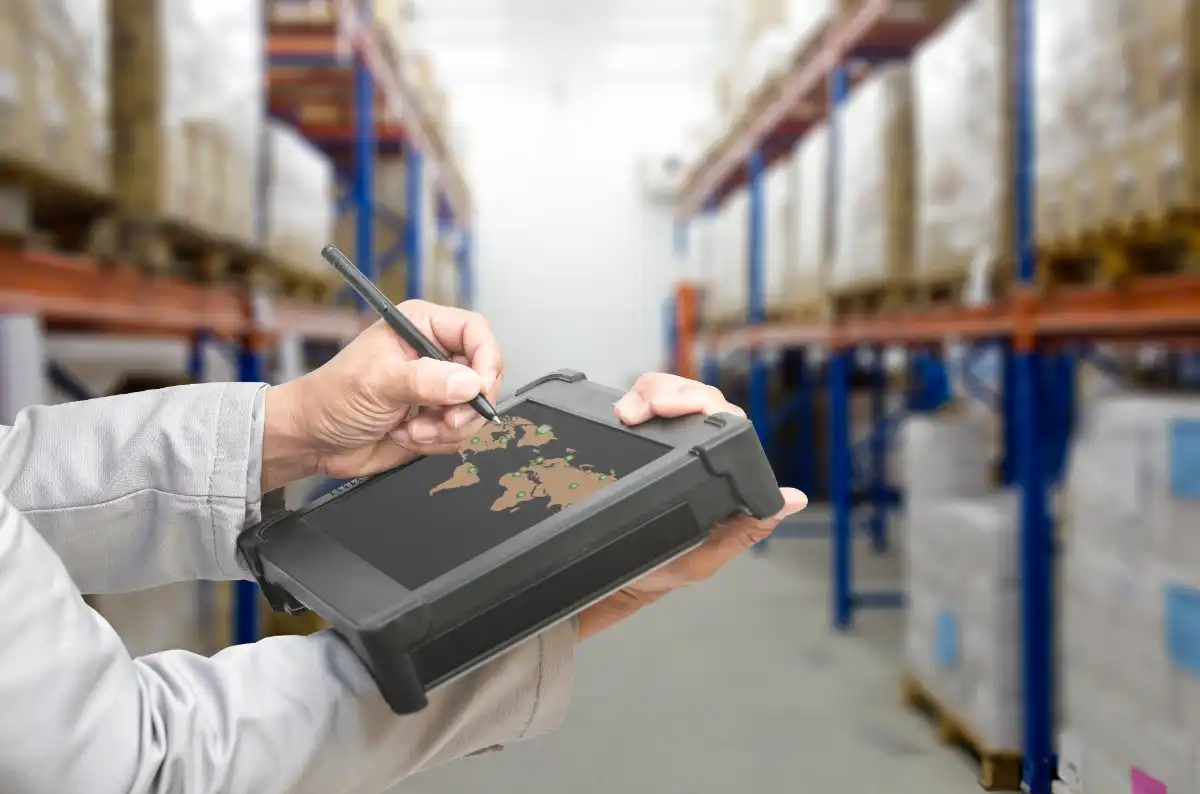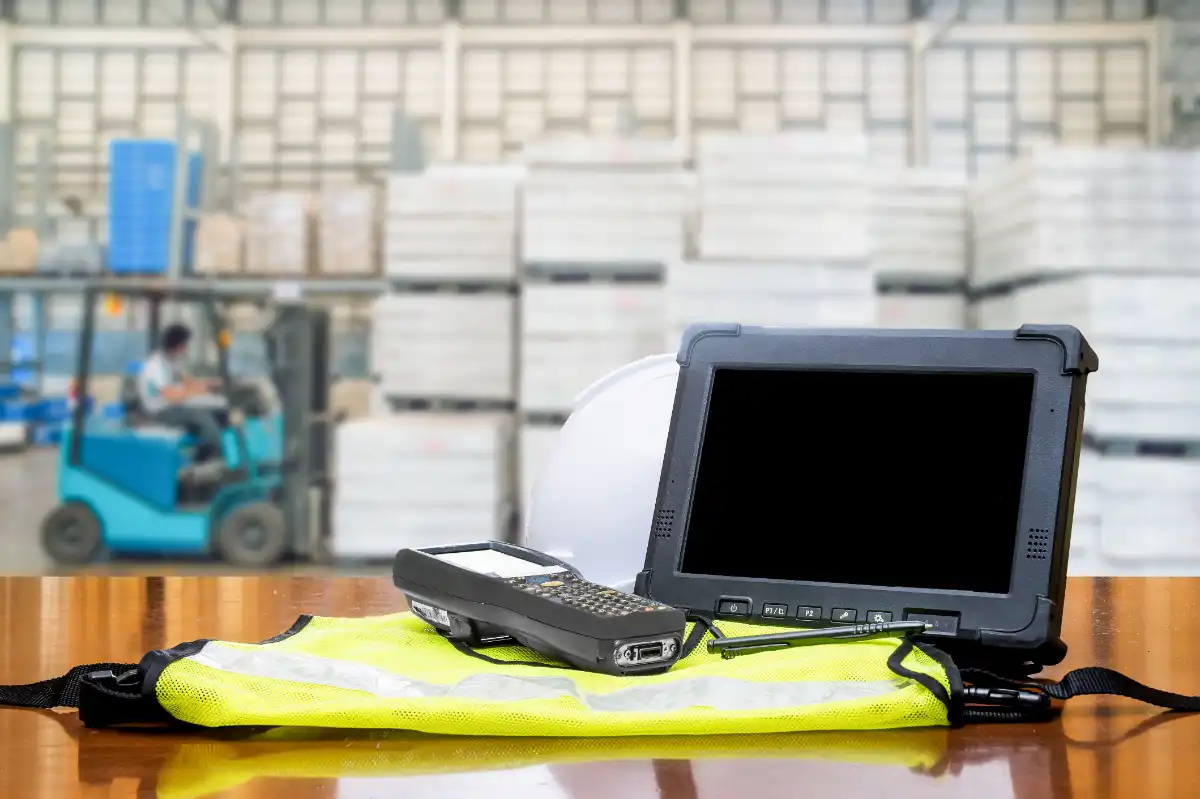Summary: This guide explores rugged devices, designed to withstand harsh conditions in industries like manufacturing and logistics. It covers risks to mobile devices, types of rugged devices (semi-rugged, fully-rugged, ultra-rugged), key features like durable casing and water resistance, and their uses in various sectors. Learn how Lowry Solutions provides rugged device management to enhance enterprise mobility.
Table of Contents
If your industry requires harsh conditions, you might have given up on the prospect of using delicate mobile devices in your operation. However, with rugged devices, you can save the time it takes to go back and forth between workstations with mobile solutions that can withstand anything you dish out. But what is a rugged device and how does it work?
Our guide to rugged devices explores some of the top threats that enterprise mobility devices face and how modifications to mobile devices can protect your precious IT assets from damage and premature wear, while also supporting a robust enterprise mobility strategy.
Top Risks of Mobile Device Damage
Corporate devices used in the field are at serious risk of being damaged or compromised due to various working conditions. Depending on the industry and work setting, these risks can vary from water ingress to rough handling to extreme temperature variations. RFID Technology can help track and monitor these devices in real time, improving asset visibility and reducing potential losses
Some of the top risks your mobile devices face in the field include:
- Moisture ingress from rain, snow, or other water sources
- Extreme temperatures from either heat or freezing when working indoors or outdoors
- Shock and vibration that cause damage to internal components
- Prolonged usage during long shifts that drains battery life
Extreme conditions like these can threaten the internal and external components of your devices, shortening their life span or causing them to malfunction. Improperly protected devices can lead to significant increases in operating costs and losses in productivity.
Types of Rugged Devices
Rugged devices are alternatives to conventional consumer devices, designed specifically to endure harsh work environments. These devices range in their level of hardness and resilience, as some are designed to withstand far more extreme threats than others.
In general, you have three categories of device ruggedness to choose from:
- Semi-rugged: Also known as business-rugged devices, semi-rugged corporate devices most closely resemble a typical corporate device, such as an Android enterprise device. However, this category of device has had modifications made to it in order to meet extended needs, such as prolonged use, enhanced security, or the ability to attach specialized accessories.
Lowry Solutions supplies rugged devices to a number of high intensity industries including: |
- Fully-rugged: Fully-rugged devices are designed to withstand industrial conditions, such as exposure to extreme temperatures, moisture, or particulates. They’re often equipped with a hard casing that protects the device from breaking when dropped. The internal components are also often made from stronger steel alloys to prevent internal breakage.
- Ultra-rugged: For the most extreme and prolonged conditions, ultra-rugged devices are essential. Originally designed to military specifications, ultra-rugged devices continue to operate under shock and vibration as well as inclement weather conditions thanks to exterior casing and reinforced internal components.
Because of the demand for rugged devices, there are numerous types of devices that can be ruggedized, including:
- Cell phones
- Tablets
- Mobile computers
- Inventory and barcode scanners
- GPS devices
- Printers
- RFID equipment
With the rugged device market growing steadily, rest assured there is almost certainly a ruggedized device solution for any IT asset you need.

Main Features of Rugged Devices
Depending on your industry, work setting, and other business needs, there are likely some specific features you want your rugged devices to have.
Below are some of the top rugged device features you may need:
- Durable external casing: The most visible feature of rugged devices is their outer construction. Thicker and more durable casing protects devices from broken screens and damaged components.
- Reinforced internal components: Rugged device manufacturers construct internal components from steel alloys as opposed to lightweight aluminum so they can withstand being dropped, shocked, or vibrated repeatedly.
- Water ingress protection: Protecting devices from water ingress is one of the most important features to expect from your rugged device. Unlike the protective cases used to cover consumer devices, rugged devices are engineered to meet industry-standard ingress protection ratings and are tested to ensure moisture doesn’t penetrate the device.
- Increased temperature resistance: Whether you work outdoors in cold, winter conditions or in hot manufacturing settings, you need a guarantee that your devices will work optimally. Some rugged tablets and devices are designed to operate in temperatures of -4 to 140 degrees Fahrenheit.
- Improved battery life: Field devices tend to be used for extended periods and cover multiple shifts, meaning longer battery life is essential. Rugged devices offer up to 30 hours or more of battery life, so you don’t have to worry about interrupting operations to recharge.
- Other enhanced features: Besides the superior physical construction, rugged devices offer necessary performance features, like larger and more responsive touch screens, GPS and RFID integration, real-time processing, and industrial-grade cameras, voice recorders, or barcode scanners.
Depending on the type of rugged device, it may or may not have been manufactured to include any or all of these features. The only way to know for sure whether your device meets the highest standards of ruggedness is to look for the MIL-STD-810G certification. The devices are military-specified, meeting 29 different tests from freeze-thaw cycles to ballistic shock.
Industry Uses for Rugged Devices
What is a rugged device used for? Given the purpose of rugged tablets and mobile devices to operate in rough conditions, there are a few industries that benefit from investing in rugged device management.
Some of the top industrial uses for rugged devices include:
- Construction
- Healthcare
- Logistics and transportation
- Manufacturing
- Public safety
- Retail
- Warehousing and distribution
For the above industries, not only is superior physical protection needed, but the performance must also be reliable. Rugged mobile devices for these industrial uses are often designed to accommodate higher processing power that delivers real-time updates or enables remote troubleshooting.

Choose Lowry Solutions for Rugged Device Management
When you need reliable rugged technology to support your most critical operations, turn to an experienced supplier of rugged devices and device management solutions.
Lowry Solutions is a leading provider of Device as a Service (DaaS), including printers, scanners, handheld computers, and RFID equipment. Our rugged device experts will help you select and configure the right industrial equipment based on your work environment and business needs.
Lowry is also your trusted source for comprehensive rugged technology solutions that manage and secure your mobile devices. When you need a better way of managing rugged devices, choose Lowry Solutions for rugged device management solutions.
Connect with us today to learn more about our suite of enterprise mobility solutions.
Frequently asked questions
A rugged device is a product that is made with the ability to resist drops, dust, water, and extreme temperatures while keeping its reliability and being able to be used in very tough working environments.
Rugged devices are used by almost all industries, like manufacturing, logistics, warehousing, healthcare, construction, and retail, to support their daily activities.
They possess reinforced hardware, longer battery life, and protection from very tough conditions that would otherwise destroy consumer devices.
The world of rugged devices consists of mobile phones, tablets, barcode scanners, mobile computers, printers, and RFID equipment that are available in different rugged levels.
Lowry Solutions acts as a guide in choosing, rolling out, and managing rugged devices. That way, teams do not get affected by device failures or downtimes and remain productive.


